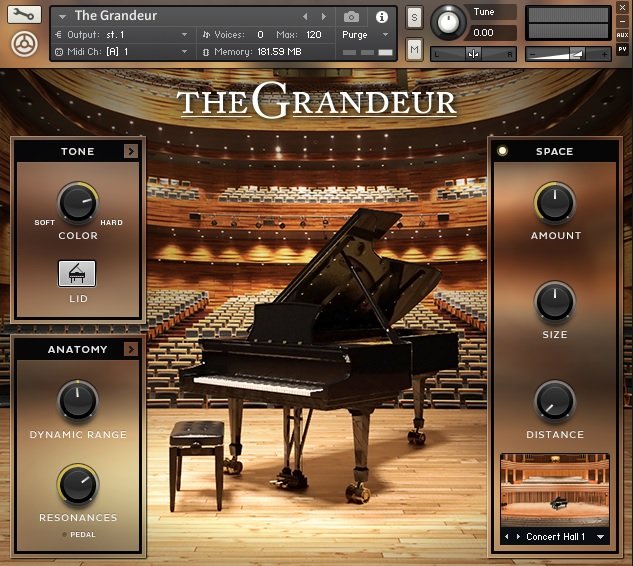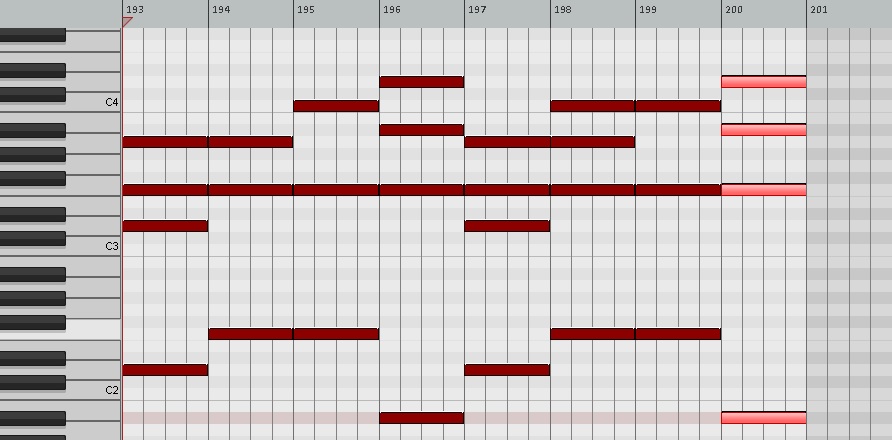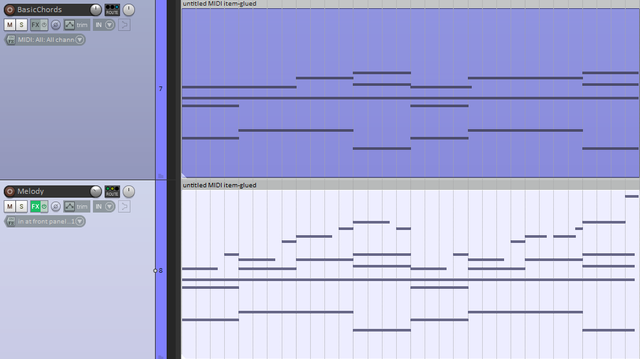How to Begin Writing Music
When it comes to writing a piece of music, there are many different ways to go about it. I personally like to begin with a melody, then build everything around it, but for this tutorial I decided to begin with a chord progression and writing the melody based off of that. The reason I am going to begin with the chord progression is because it's an easier starting point, especially for new producers.
Writing the Chords
Creating chords can be one of the trickiest and most time consuming aspects of writing music. But one strategy that I like to use when starting with the chords is that you already have several notes to choose from when writing your melody.
The Key we will be using is the key of A minor (all of the white keys). In my opinion, this is the easiest scale to use because you don't have to worry about any sharps or flats. One recommendation that I have is when you are writing your chords or melody, use a piano because your ears won't get tired from hearing it over and over again. The piano I used while writing this melody was The Grandeur by Native Instruments.

While there are no hard and fast rules to writing chords, I always like to have the root of the scale somewhere in my first chord. Once I have that note down, I tend to find 1 or 2 more notes that sound really good with the A. And I ended up using D and F. Once you have your first chord, pick any one of those three notes (A,D,F) and use that note on every chord. This will really help all of the chords gel together. And because you already have one note selected, you really only have to find 2 more notes to complete a triad. If you want to add more body (thickness) to your chords, take the bottom note and drag it down exactly 1 octave. You can look at the screen shot below to see the full progression.

Writing the Melody
This is my favorite part of making music! Once you get here, you want your melody to be written above your chord progression. I typically like to have my song on loop and hum melodies to myself while it's playing. Once I hear something that sounds good and fits with my chords, I start writing the notes in.
If you're struggling with what to do or which notes to play, I recommend only using the notes in your chord to start, then make a pattern that goes up (to another note in the following chord) or down. If you are all over the place with your note selection, it won't have that "professional" sound to it. And one tip I always like to do is write melodies in bars of 4, copy it, then for the last note, pitch it up one full octave. It's very subtle, but it will add just enough variety to keep the listeners attention. Below you will see a comparison of my chords with the melody I wrote.

Resources
At this point, we basically have the meat and potatoes of our song complete. Here are a few great pianos you can use in your music productions:
The Grandeur:
A very realistic piano. It's full bodied and has several options to tweak the sound. If you're looking for a flexible and realistic piano, this is what I'd recommend.
https://www.native-instruments.com/en/products/komplete/keys/the-grandeur/
TruePianos:
Still one of my favorite plugins, this has more of that "pop" sound to it right out of the box. If you're looking for a big, anthemic sound, this is my recommendation!
4Front Piano:
This is probably one of the best free piano plugins out there.
My music is not just about entertainment. It is about enlightenment also.
You very well explained how to write a melody without using the complicating vocabularity
Thanks for checking my post out! I'm glad it's easy to understand :)
I walked into an international economics tutorial, and the professor said, 'I don't know how to teach a woman.' I said, 'It's the same as teaching a man.' I just sat down, and he had no choice but to start teaching. When I handed in my first paper, I think that shut him up.
Listen, acting is not surgery, it's entertainment. You're doing something to hopefully move people, to make them laugh, to transport them. But actors are vulnerable, and the reason we're vulnerable is that we're always trying to recreate human behaviour.
Thanks for sharing this i love to sing but lack dedication of training
Absolutely! Hopefully this helps :D I apologize I missed your comment earlier
To me there is no picture so beautiful as smiling, bright-eyed, happy children; no music so sweet as their clear and ringing laughter.